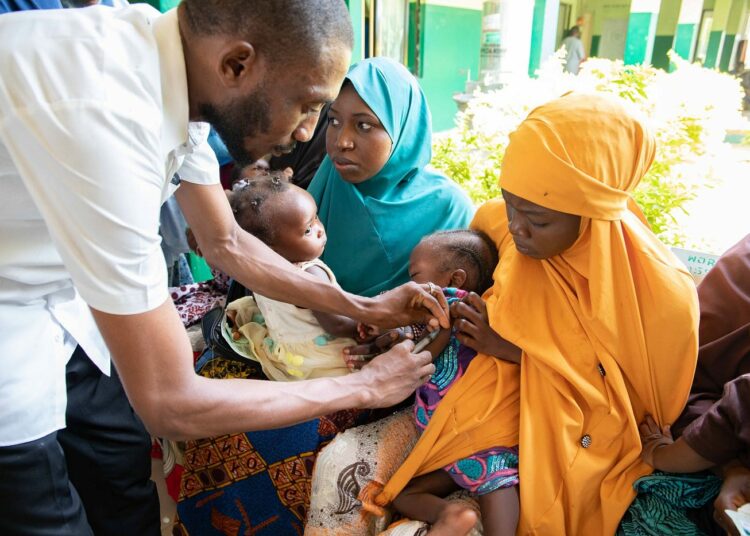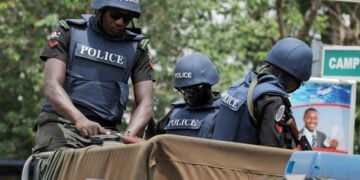Recent statistics reveal that the national coverage for full vaccination (all first-year antigens) among children 12-23 months in Nigeria is 35.6 per cent, with sharp regional variation. Globally, in 2022, about 20.5 million children were either unvaccinated or under-vaccinated, with about 14.3 million children not receiving any vaccination at all.
As the world marks vaccination week this August, the World Health Organisation (WHO), in its report “Breaking barriers, building bridges: the collaborative effort to reach every child in Nigeria,” said Nigeria faces a particularly alarming situation with over 2.2 million estimated zero-dose children in 2021. The report also added that 100 local government areas (LGAs) in 18 states across the federation account for 1.5 million of Nigeria’s 2.2 million zero-dose children.
Medical experts insist that immunisation is an essential, cost-effective strategy to reduce childhood morbidity and mortality, saving an estimated 2 to 3 million lives annually. However, vaccine coverage in many lower and middle-income countries (LMIC), including Nigeria, falls short of the WHO target of 90 per cent national coverage with three doses of diphtheria-tetanus-pertussis-containing vaccines (DTP3).
Among these are ‘zero-dose’ children, who do not receive a single dose of any vaccine in the routine national immunisation schedule, and ‘missed dose’ children who do not receive the complete schedule. Children who do not receive DTP1 are often used as a proxy indicator for zero-dose children, while completing three doses of DTP-containing vaccine before 12 months of age is WHO’s proxy indicator for routine immunisation programme performance.
In our view, unvaccinated children remain vulnerable to vaccine-preventable diseases and are often already disadvantaged due to poverty, conflict, and lack of access to basic health services. A major finding from the 2021 Multiple Indicators Cluster Survey/National Immunisation Survey Coverage (MICS/NICS) revealed that among children aged 12–23 months in Nigeria, 17.8 per cent did not receive any recommended routine vaccinations, with 51.9 per cent receiving full immunisation for the basic antigens in urban areas compared with about 26.4 per cent in rural areas.
The MICS 2021 survey in Nigeria also revealed that the percentage of children aged 12–23 months who did not receive any vaccination was higher in rural areas (22.5 per cent) than in urban areas (9.3 per cent). This can be attributed to the fact that mothers living in rural areas have low knowledge of vaccine-preventable diseases and routine immunisation, affecting their immunisation uptake. 13.0 per cent of children aged 24–35 months did not receive any vaccinations.
As a newspaper, we know that due to the low immunity that commonly characterises childhood age, children are particularly vulnerable, and the mortality of children aged less than five years are mainly caused by malaria, pneumonia, diarrhea, pertussis, measles, meningitis, and infectious disease attacks.
Experts posit that immunisation against polio, as well as rubella, meningitis, measles, diarrhoea, and pneumonia, has considerably reduced the occurrence of disabilities such as mental retardation, hearing loss or deafness, meningitis, intellectual disability, and mobility impairment.
However, recent reforms, such as the National Health Insurance Authority Bill and the Basic Healthcare Provision Fund, being implemented nationwide to ensure financial protection and sustainable financing for primary healthcare services, including immunisation, have not impacted improving immunisation coverage.
We know that reaching zero-dose children requires locating and engaging the communities they belong to. Since such communities often include remote rural, urban poor, or conflict-affected areas facing various forms of deprivation, cross-sectoral collaboration is needed to identify and reach them.
Unfortunately, the low immunisation rate has made children more vulnerable to diseases such as diarrhoea, pneumonia, measles, and many other diseases, which has increased the mortality rate among children under five years old.
Nigeria, as part of the Global Vaccine Action Plan (GVAP), has implemented many strategies to address the country’s low immunisation coverage, including, but not limited to, routine immunisation intensification, supplemental immunisation activities, a global positioning system (GPS) tracker, emergency vaccination centres, and many community-level interventions to reach different parts of the country.
Besides that, the agency saddled with the responsibility, the National Primary Health Care Development Agency (NPHCDA) and partners, including WHO and UNICEF, developed an Immunization Recovery Plan 2022-2025 that incorporated a Big Catchup Plan targeting zero-dose children.
This newspaper found out that several health system factors, such as funding constraints, inadequate infrastructure and equipment, health worker-related and political factors, and community-level factors, such as the attitudes of community stakeholders and members, hinder the delivery of vaccination communication interventions.
Therefore, addressing communication gaps, especially in routine immunisation services, will require bridging the current funding gap, addressing human resource deficits and ensuring strong political will for implementation.
Also, facilitators for implementing vaccination communication interventions, such as the engagement of traditional and religious institutions and the use of organised communication committees, should be strengthened. Vaccination communication activities could meet their objectives if sufficiently planned, funded, and integrated with service delivery.





